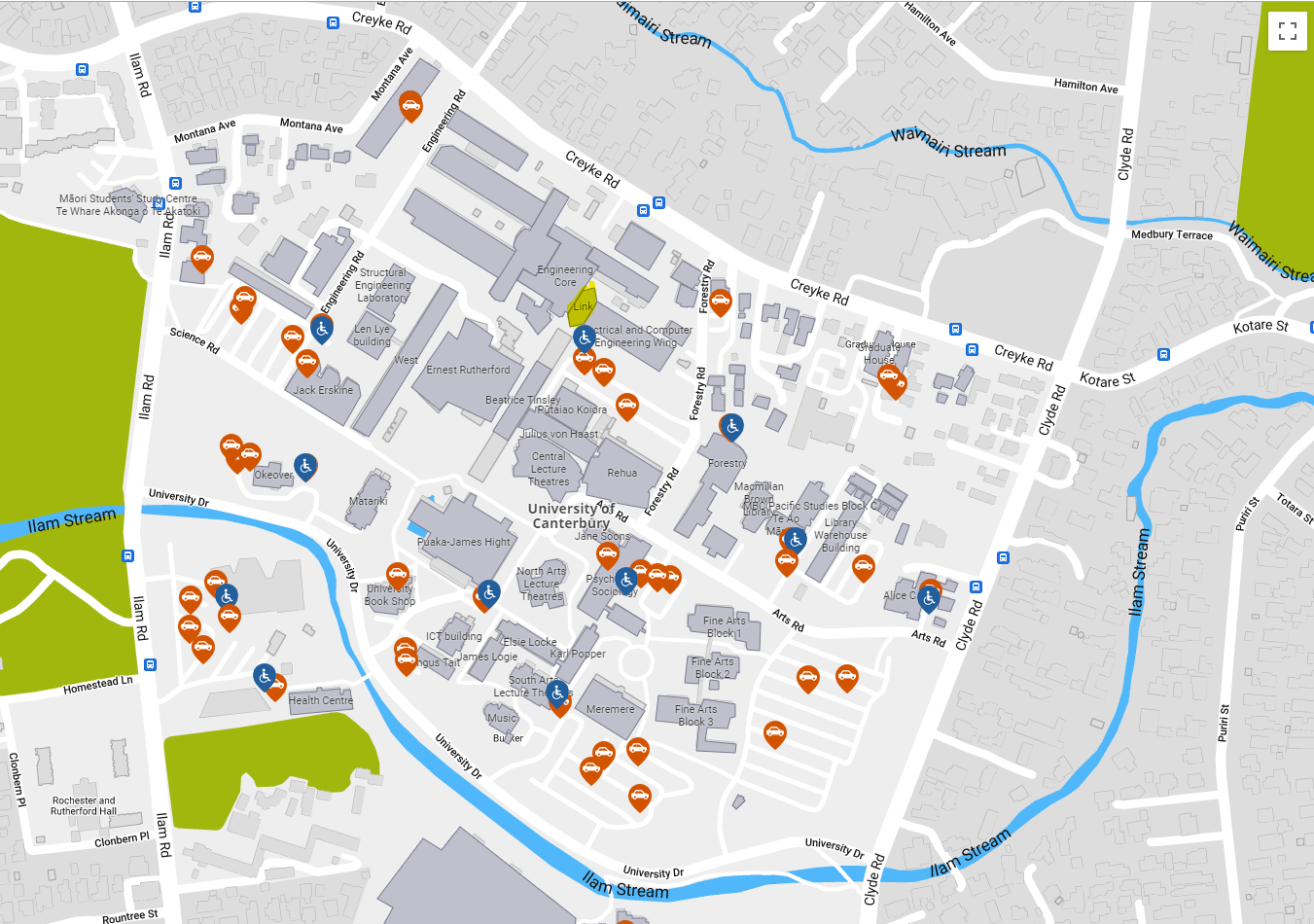Date/Time
Date(s) - 15/07/2021
1:00 pm - 2:00 pm
Location
University of Canterbury, main campus
Categories No Categories
The University of Canterbury welcome Transportation Group members to this seminar
Transportation engineering in the era of emerging technologies and big data
Presented by
Dr. Mehdi Keyvan-Ekbatani, Senior Lecturer, Civil & Natural Resources Engineering, University of Canterbury
Thursday July 15, 2021
1 – 2 pm
Room 309, Link Building
Level 3 of the building between the Engineering Core and Electrical Engineering laboratories, University of Canterbury (see map below)
Seminar overview
Traditionally, traffic data are obtained from fixed inductive loop detectors which are costly to be installed and maintained. To monitor a large-scale network one cannot rely only on one type of data since each source of data carries partial information about the network traffic state. Thus, integrating, cleansing and filtering the big data collected from multiple sources such as loop detectors, surveillance cameras, Connected and Automated Vehicles trajectory, public transport smart cards and GPS devices to estimate principal parameters of traffic flow is crucial and still an open problem. Due to the increasingly availability of traffic data, adaptive control, which is intrinsically more effective and robust than the fixed-time control, is receiving more concern in both research and practical implementation. Current traffic optimization strategies are mostly unable to mitigate congestion in large-scale urban networks. In addition, the existing control strategies are either dealing with motorway or urban traffic flow dynamics. Mathematical modelling of the traffic dynamics of each element in a large urban network with a high number of links and intersections is a complex task. As the data-driven approaches usually deal with single data source while lacking mobility models, i.e., missing causality and physics, such methods are not robust and fragile to data error. Novel approaches have been developed to use multi-source data for traffic estimation as a basis of traffic management and monitoring. This led to better understanding of temporal-spatial evolution of traffic dynamics at local and network level. Innovative optimisation-based algorithms have been implemented to mitigate congestion, reduce emissions and improve urban mobility.
Biography: Mehdi Keyvan-Ekbatani | University of Canterbury




